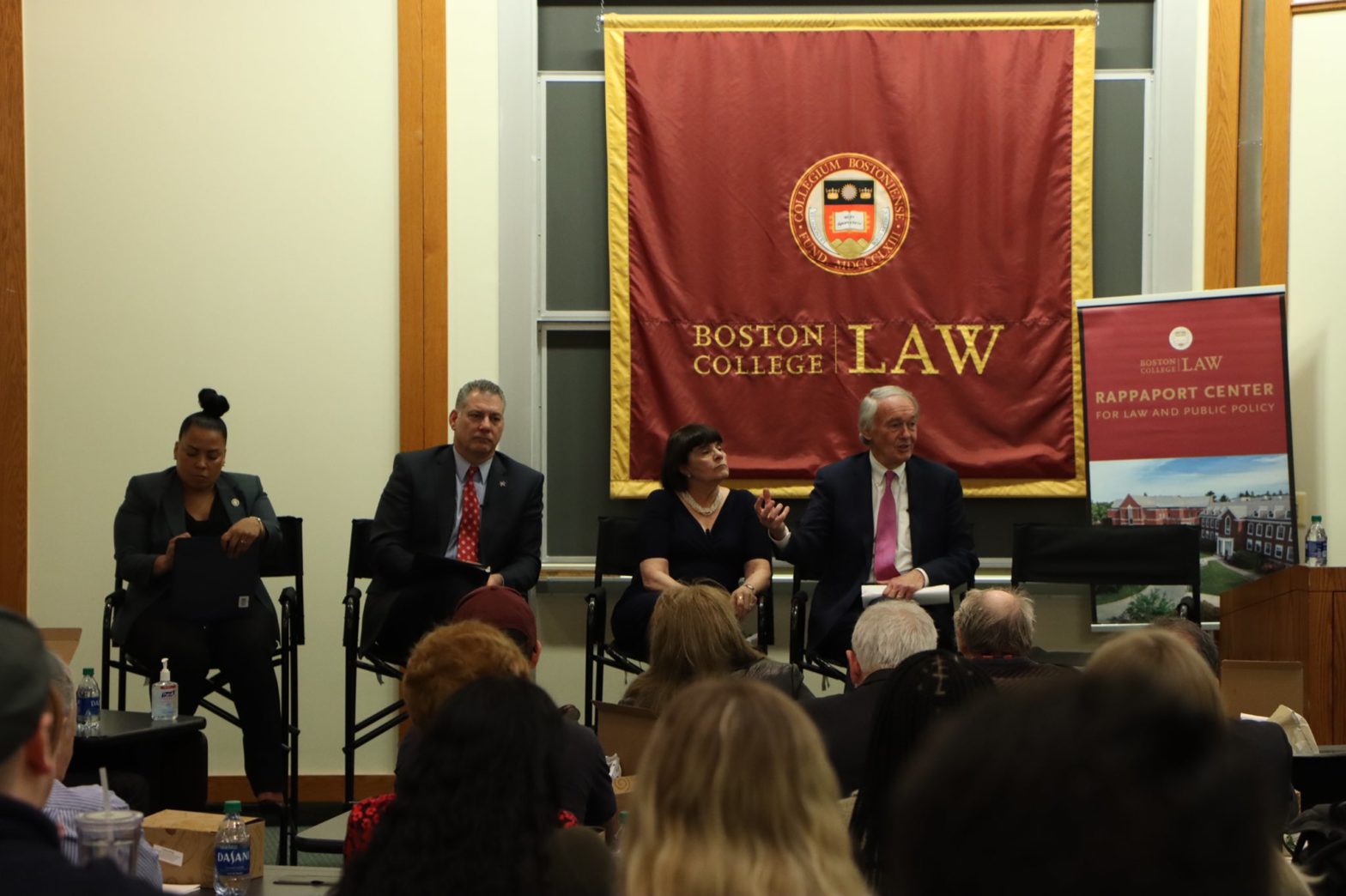Ed's Priorities
Criminal Justice Reform
The United States’ criminal justice system has never truly been just for everyone. With nearly 7 million people in this nation incarcerated, on probation, or on parole, Ed strongly believes we must systematically transform our criminal justice system.
Throughout his career, Ed has worked to implement reforms during all phases of the criminal justice process. He believes that it is paramount to prevent community members from getting caught in the system in the first place, and that mass incarceration and the war on drugs must end.
Racist laws and enforcement have historically and systematically harmed communities of color, and we must take steps to reform the pre-arrest phase of our criminal justice system to keep people from entering it in the first place. Ed believes we must re-evaluate the laws that have harmed these communities for decades, like mandatory minimums, zero-tolerance policies that enable the school to prison pipeline, the criminalization of poverty, homelessness, and mental illness.
Following the murders of George Floyd, Breonna Taylor, and the many other Black lives at the hands of law enforcement, Ed introduced a resolution to abolish qualified immunity, a judge-made doctrine that protects law enforcement officers from being sued in their personal capacity and being held personally liable for their abuses. For decades, law enforcement has relied on qualified immunity to shield officers from accountability for instances of police brutality and excessive force. Ed knows that it is time to hold our law enforcement accountable.

Senator Markey also believes that we need to support and re-invest in these communities, through affordable housing and transportation, access to mental health and substance abuse treatment, and enacting sensible gun safety measures to combat gun violence.
At the federal level, Ed supports programs that invest in prisoners so that they are more likely of rehabilitation and successful reentry post-sentence. These include expanding access to Pell Grants for incarcerated individuals, ensuring video and phone calls are available to prisoners so they can better maintain ties to their families and communities, and expanding programming that provides prisoners with vocational skills, occupational education courses, and financial literacy.
Ed has advocated for reform of the nation’s unjust sentencing laws, and that is why he supports the First Step Act, which eases mandatory minimums and includes a number of reforms to reduce recidivism, improve prison conditions, and end federal juvenile solitary confinement. Because Senator Markey knows we have a lot more work to do, he immediately co-sponsored Senator Booker’s Next Step Act of 2019, the only senator to do so.
Those who cannot afford to post bail and remain detained for pretrial, lose Medicaid eligibility. That’s why Senator Markey wrote the Equity in Pretrial Medicaid Coverage Act, which allows Medicaid benefits to be accessed for individuals who are in custody awaiting disposition of charges. He also introduced the Supporting Positive Outcomes After Release Act, legislation that would require states to suspend, rather than terminate, an inmate’s Medicaid coverage while they are incarcerated.
Senator Markey understands that if we are serious about breaking the cycle of recidivism, we need to adequately support prisoners post-release. This means restoring the right to vote to everyone who has completed their prison sentence, providing formerly incarcerated individuals a fair chance at employment by “banning the box,” and reducing barriers to obtaining identification documents and occupational licenses. Ed also believes in better utilizing residential reentry centers and facilitating the expungement of low-level drug offenses to better aid citizens impacted by the justice system. He is also a strong advocate for expanding access to housing for people with a conviction history, so that their release can truly usher in a meaningful, constructive re-entry. Ed understands that true criminal justice reform requires bettering communities and putting support structures in place beyond bars as well as improving conditions for individuals behind them.
If you wish to make an offline donation, please mail a check to:
The Markey Committee
PO Box 120029
Boston, MA 02112
Click here to contact the campaign with any questions or comments.
 English
English Português
Português Español
Español